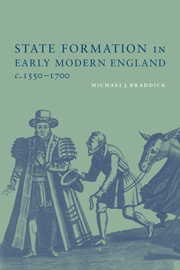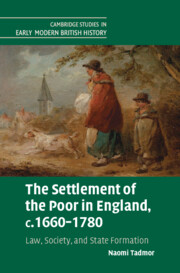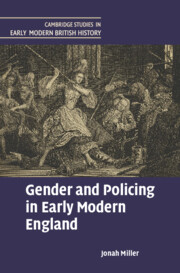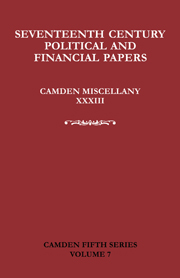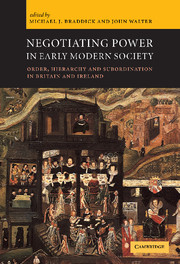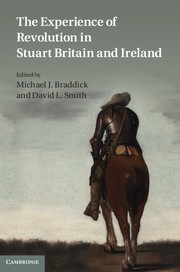State Formation in Early Modern England, c.1550–1700
This book examines the development of the English state during the long seventeenth century, emphasising the impersonal forces which shape the uses of political power, rather than the purposeful actions of individuals or groups. It is a study of state formation rather than of state building. The author's approach does not however rule out the possibility of discerning patterns in the development of the state, and a coherent account emerges which offers some alternative answers to relatively well-established questions. In particular, it is argued that the development of the state in this period was shaped in important ways by social interests - particularly those of class, gender and age. It is also argued that this period saw significant changes in the form and functioning of the state which were, in some sense, modernising. The book therefore offers a narrative of the development of the state in the aftermath of revisionism.
- Makes an original argument about a well-established historical question - 'the state' in the seventeenth century - on the basis of wide thematic and chronological coverage
- Offers material and arguments about state formation which will interest those working in politics and historical anthropology as well as in seventeenth-century English political history
- Weaves material on politics with studies of class, gender and age to provide a rounded picture of 'the state' during the 'long' seventeenth century
Reviews & endorsements
"Braddick leads an impressive tour through social, political and intellectual history in his account of state formation." Journal of Modern History
"One virtue of this volume is that it draws a number of topics of interest from 'other' social sciences and explicates them in the framework of the historian's language. There is little jargon, and putting the state back in the middle of it all is both an old tradition and a corrective to modern work that tends to relegate it to the outer boundaries...Braddick is to be commended for his discussion of important issues." Journal of Interdisciplinary History
"Braddick's achievement is one of theoretical synthesis, the incorporation of material that is familiar enough in other contexts into a new meganarrative, and one that is complex and flexible enough to look useful for colleagues and students alike. It is a fine piece of work." Historian
"...the author marshals an impressive array of works on social, political, military, and religious history." Seventeenth-Century News
"That this is a fine book--deeply informed, synoptic, carefully reasoned--there can be little doubt." Albion
"This is a major work of synthesis, offering important insights into 'th development of the English state in the long seventeenth century'... , notably the state's impact 'in English villages and wards' ... This is a fine book, well written, convincingly argued, and based on an astonishingly wide range of secondary literature." Sixteenth Century Journal
Product details
December 2000Paperback
9780521789554
460 pages
229 × 152 × 26 mm
0.67kg
Available
Table of Contents
- Introduction
- Part I. State Formation in Early Modern England: Introduction
- 1. The embodiment of the state
- 2. The uses of political power in early modern England
- Conclusion
- Part II. The Patriarchal State: Introduction
- 3. Social order: poverty, dearth and disease
- 4. The courts and social order
- Conclusion
- Part III. The Fiscal-Military State: Introduction
- 5. The state and military mobilisation
- 6. The financing of the state
- Conclusion
- Part IV. The Confessional State: Introduction
- 7. The claims of the confessional state: local realities
- Conclusion
- Part V. The Dynastic State: Introduction
- 8. Elite formation and state formation in England, Wales and Scotland
- 9. London's provinces: state formation in the English-speaking Atlantic world
- Conclusion.

